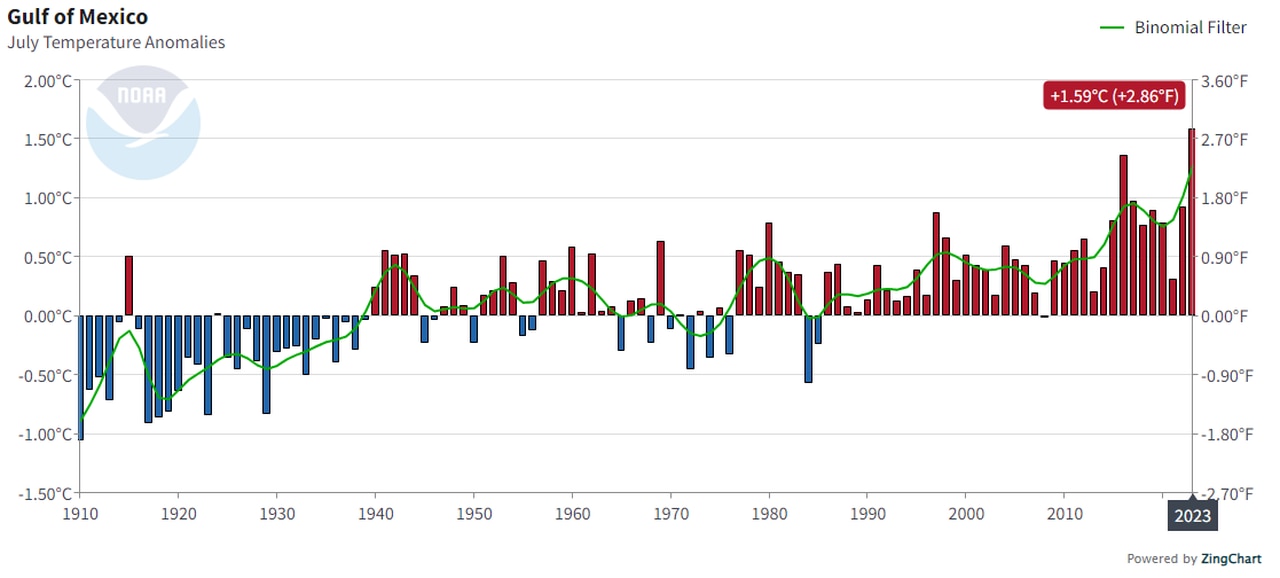Water temps hit record highs off Alabama coast
It’s not just air temperatures breaking records this month on the Alabama Gulf Coast.
The brutal heat wave affecting coastal Alabama that caused record high air temperatures in Mobile is also baking Alabama’s coastal waters to set average temperature records.
According to information from the National Oceanic and Atmospheric Administration, water temperatures at the Alabama state docks in Mobile hit 92.1 degrees twice this month, on August 14 and 15.
The previous record high of 91.4 degrees was recorded in 2007.
Huai-Min Zhang, supervisory oceanographer at NOAA’s National Center for Environmental Information, said numerous places in the Gulf have set temperature records this summer, and July showed the highest temperature anomalies, where the actual temperature is higher or lower than average for this time of year. August is tracking to be even hotter.
“It is a record-breaking year for sure,” he said.
NOAA data showing land and ocean temperature anomalies each July going back to 1910. 2023 is on pace to be a record-breaking year for air and water temperatures around the northern Gulf of Mexico.NOAA
Zhang said NOAA has used satellites since 1982 and surface measurements dating back to around 1850 to record water temperatures in the Gulf of Mexico, but that 2023 appears to be unprecedented in the record books.
NOAA monitoring stations in Pensacola, Fla. and Pascagoula, Miss. both showed similar spikes in temperature to the Mobile Bay station, though it’s not clear from the available data whether any records were set.
Average water temperatures at Gulf Shores and Orange Beach have reached 88 degrees this week, several degrees higher than usual.
The trend has been worse farther south, as Gulf waters off of south Florida have seen hot tub-level water temperatures over 100 degrees, raising concerns about coral and other ocean wildlife.
The past week especially has been a very hot week out of a very hot month out of a very hot year on the Alabama coast.
NOAA temperature records show that in Mobile, August has had the highest average air temperature in the 152-year history of the weather station there. And 2023 has been the hottest year on record for Mobile.
The Gulf Coast cities of Pensacola, Gulfport, Miss., New Orleans, Tampa, Houston and Corpus Christi are all currently experiencing the hottest month of the hottest year in NOAA records.
Zhang said the causes of the high water temperatures are general climate change, an increase in average temperatures over time due to human activity, and the El Nino weather pattern.
The consequences of that warm water are significant for the region. Warm water provides more energy for the development of tropical storm systems, like Hurricane Idalia, which is currently forecast to make landfall in Florida Wednesday as a Category 3 storm, with winds of up to 125 mph.
“The higher temperatures provide more thermal energy for the hurricane,” Zhang said. “It can make a hurricane much stronger.”
